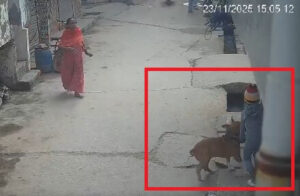MoEF warms up to establishing cold stores around Taj Mahal
New Delhi : The Environment Ministry has approved the setting up of new cold stores in the Taj Trapezium Zone (TTZ), saying these don’t the pollute air that causes yellowing of the Taj Mahal.
According to Ministry officials, based on the Central Pollution Control Board (CPCB) findings, there was no improvement in the area’s air quality after cold stores were shut or new ones not registered.

Since 2016, registration of several industries like hotels and cold stores was barred, leaving potato farmers in the area angry. There are over 250 cold stores in Agra alone.
Following protests by farmers, who faced huge losses due to limited options to store their produce, this decision now has come as a relief and an attempt to douse their anger.
TTZ is a defined area of 10,400 square km around the Taj Mahal to protect the monument from pollution. It includes parts of Agra, Mathura, Firozabad, and Etah in Uttar Pradesh and Bharatpur in Rajasthan, where potato is produced.
“We have found that maximum cold stores are not polluting. There is no link to pollution emissions. Also, the air quality did not improve after the ban on new cold stores or other industry.
“We have approved cold stores in the area. The TTZ Authority will now take a call on the matter,” a senior Ministry official told IANS.
A CPCB official said: “The particulate matter is a matter of concern in the TTZ, because of stone-crushers and mining in the region. However, the yellowing of the monument by air pollution is due to oxides of nitrogen that is generated from liquid or gaseous fuels… there was no increase in that.”
The TTZ comprises over 40 protected monuments, including three World Heritage Sites — the Taj Mahal, Agra Fort and Fatehpur Sikri.
In 2001, polluting industries were shut down in this zone. The area was later declared a white zone, allowing only white-category industries with the most strict standards. The industrialists had since been demanding permission for green-category industries with slightly relaxed pollution standards to operate from the TTZ, also including cold stores.
“In 2017, several thousand metric tonnes of potato could not be stored due to space shortage, leading to wastage and resultant losses to growers. With only around 250 cold stores in the region, they were the ones to quote their price,” Agra-based Potato Farmers Union President Rajeev Lavania told IANS.
The production cost of potato is about Rs 700 to Rs 900 per quintal, whereas the government offers only Rs 650 per quintal. Cold stores charge Rs 240 per quintal to store the crop from March onwards.





